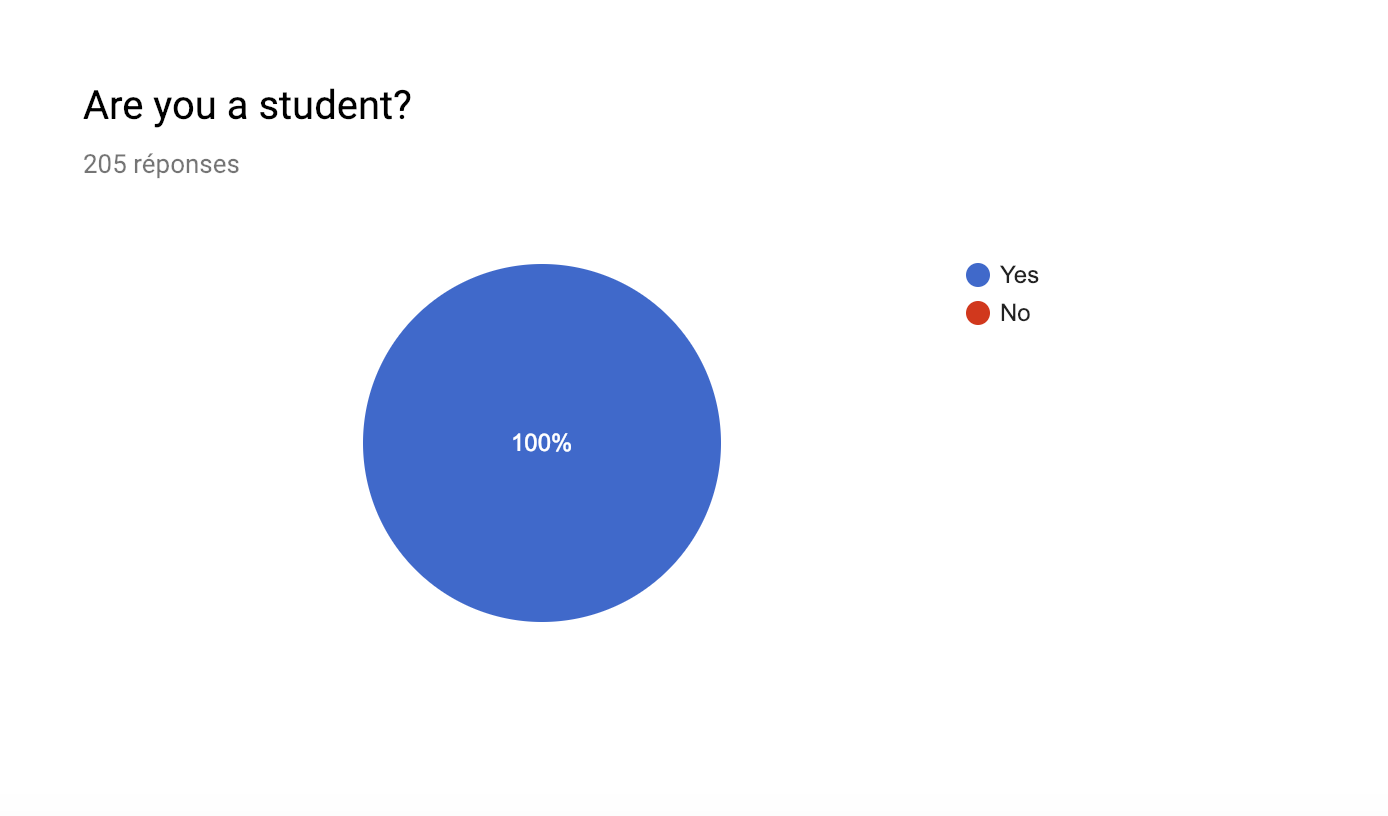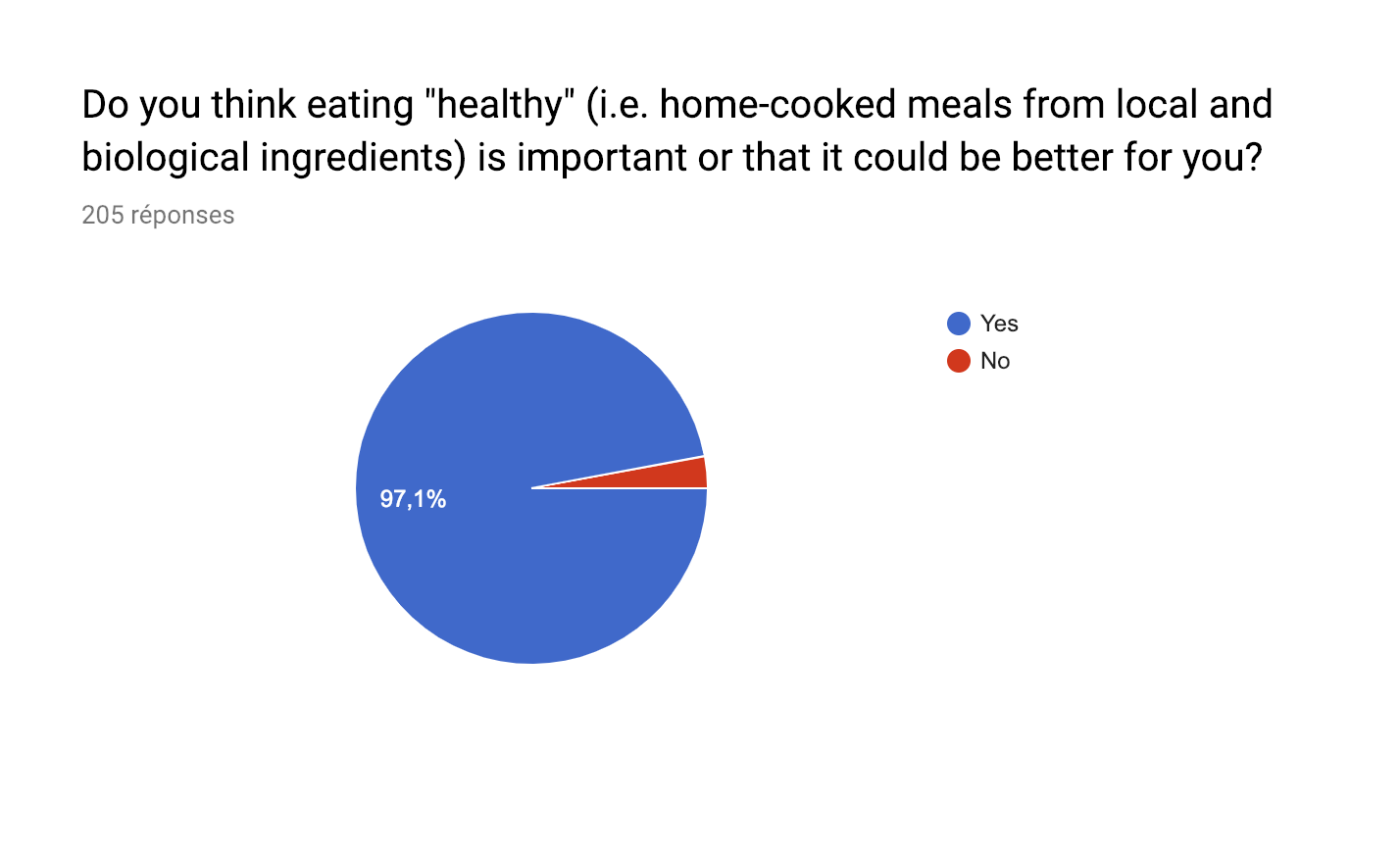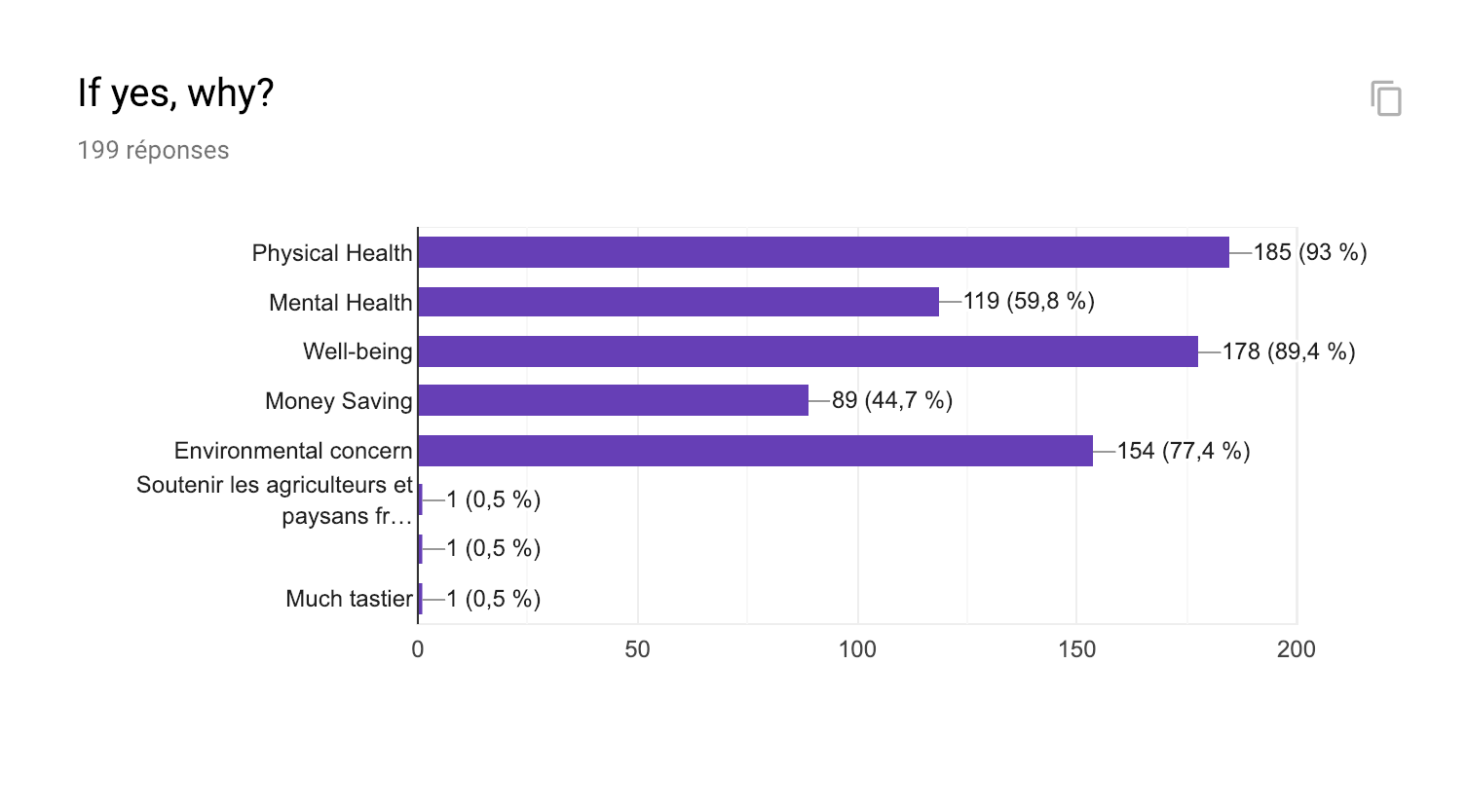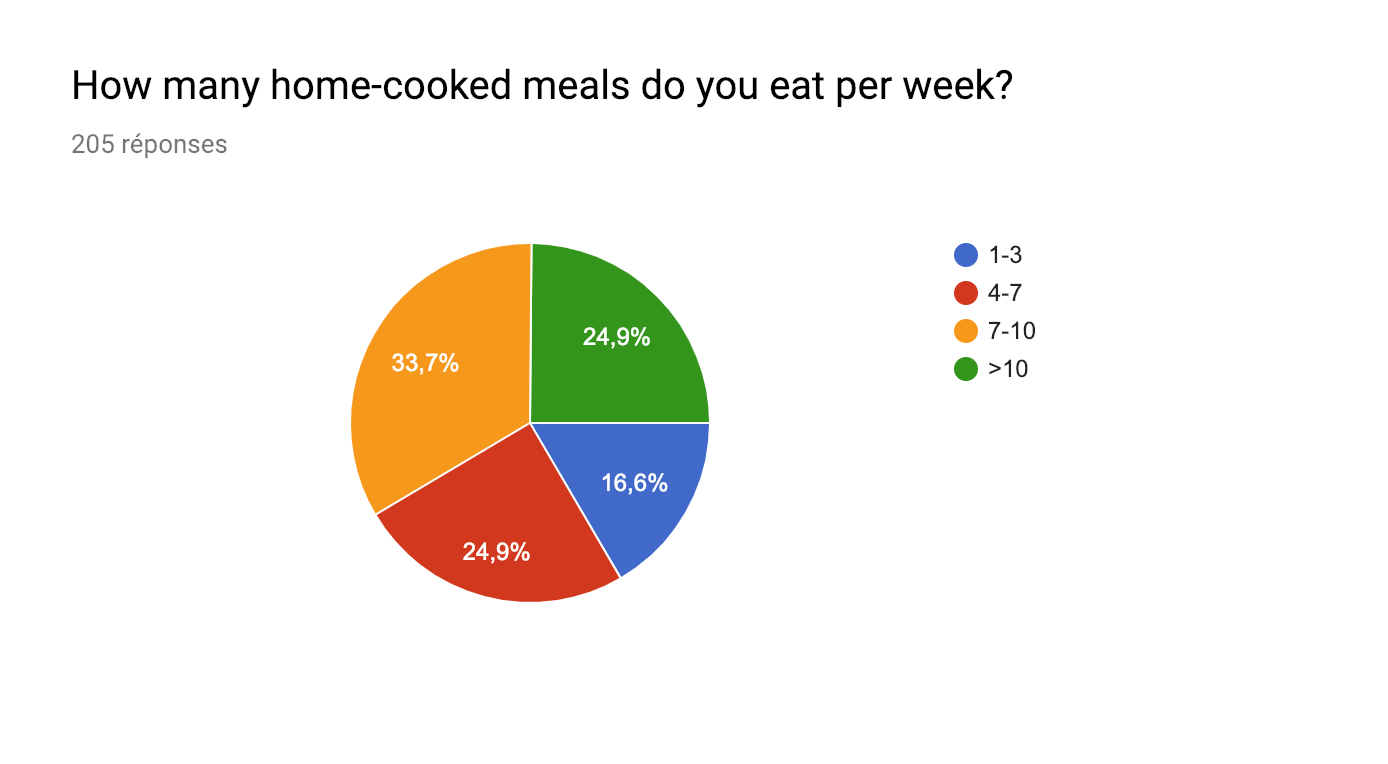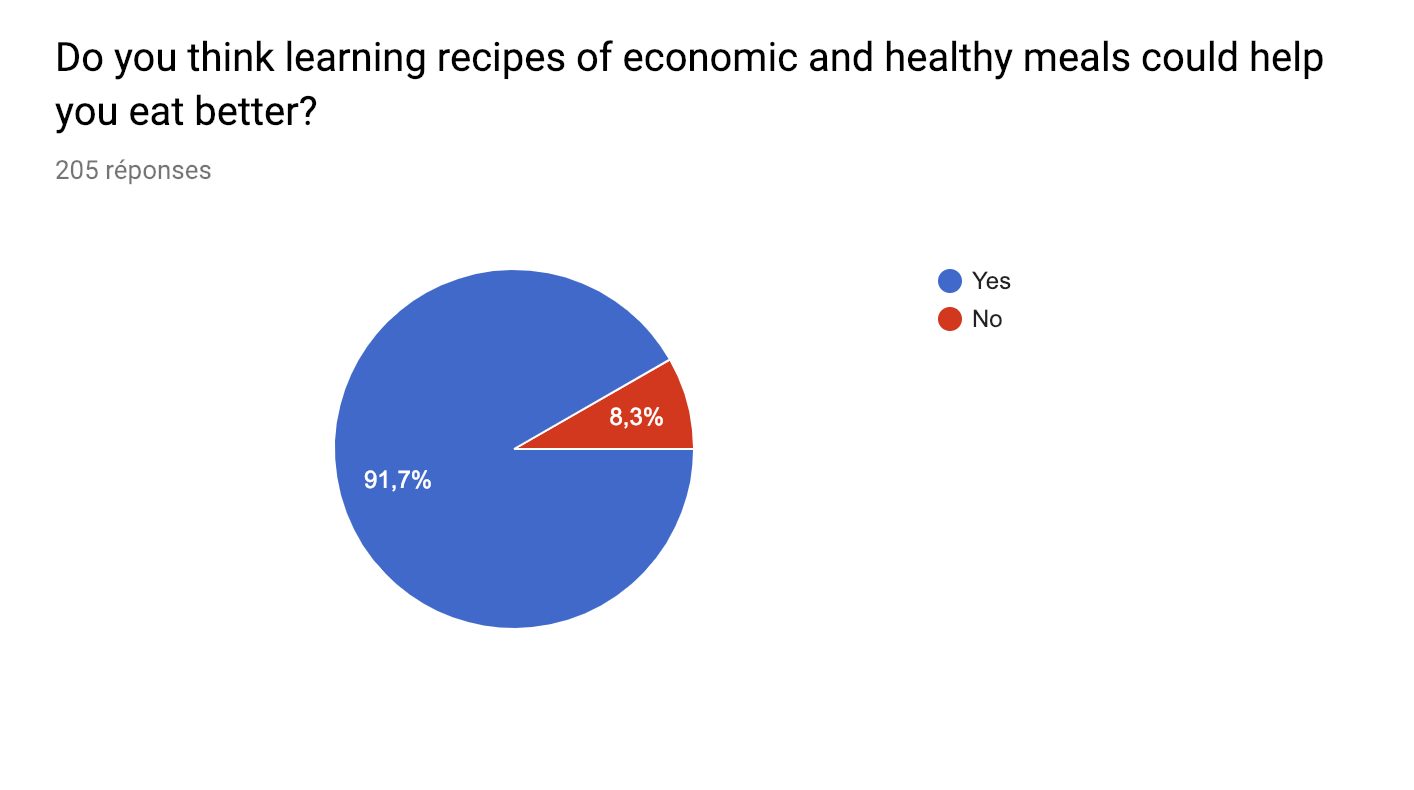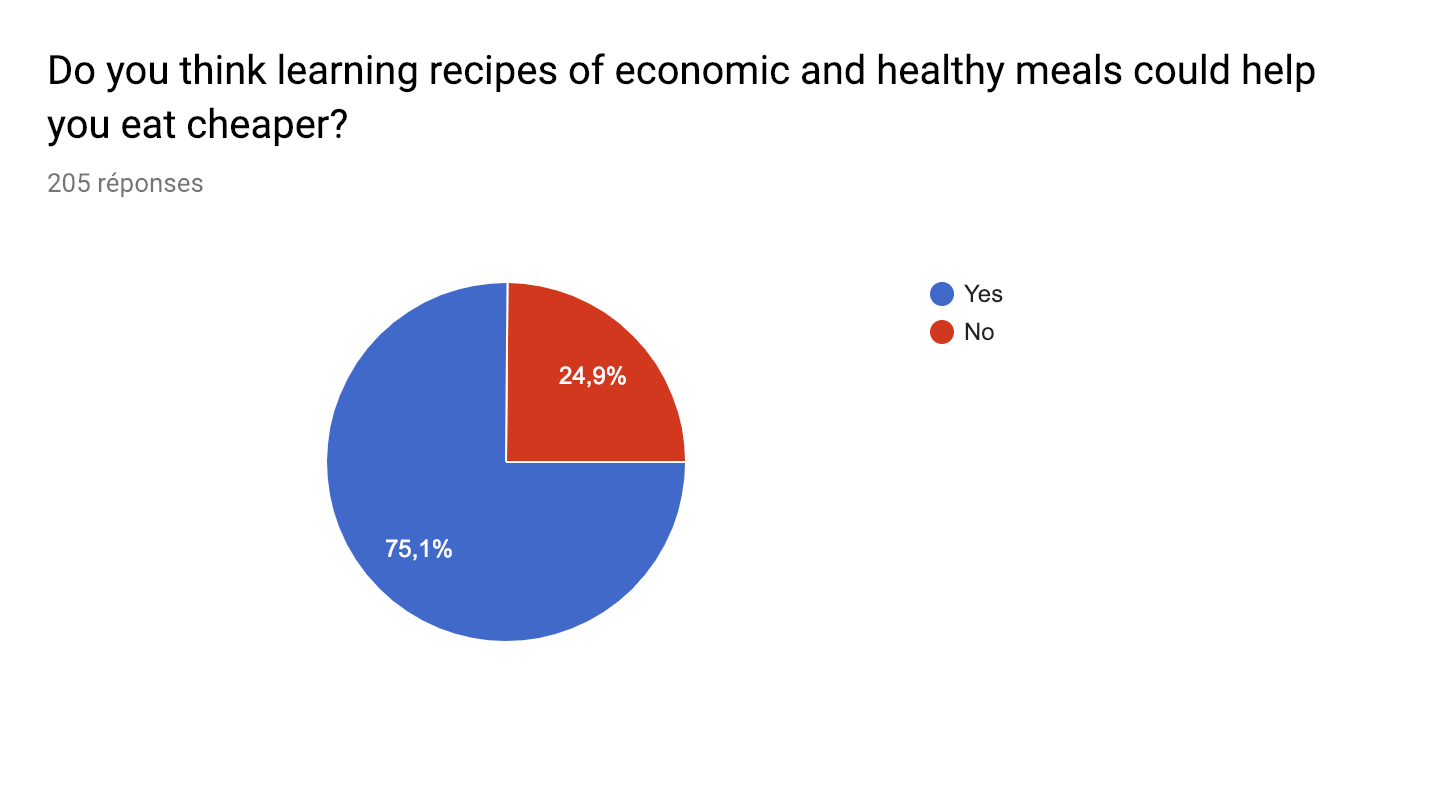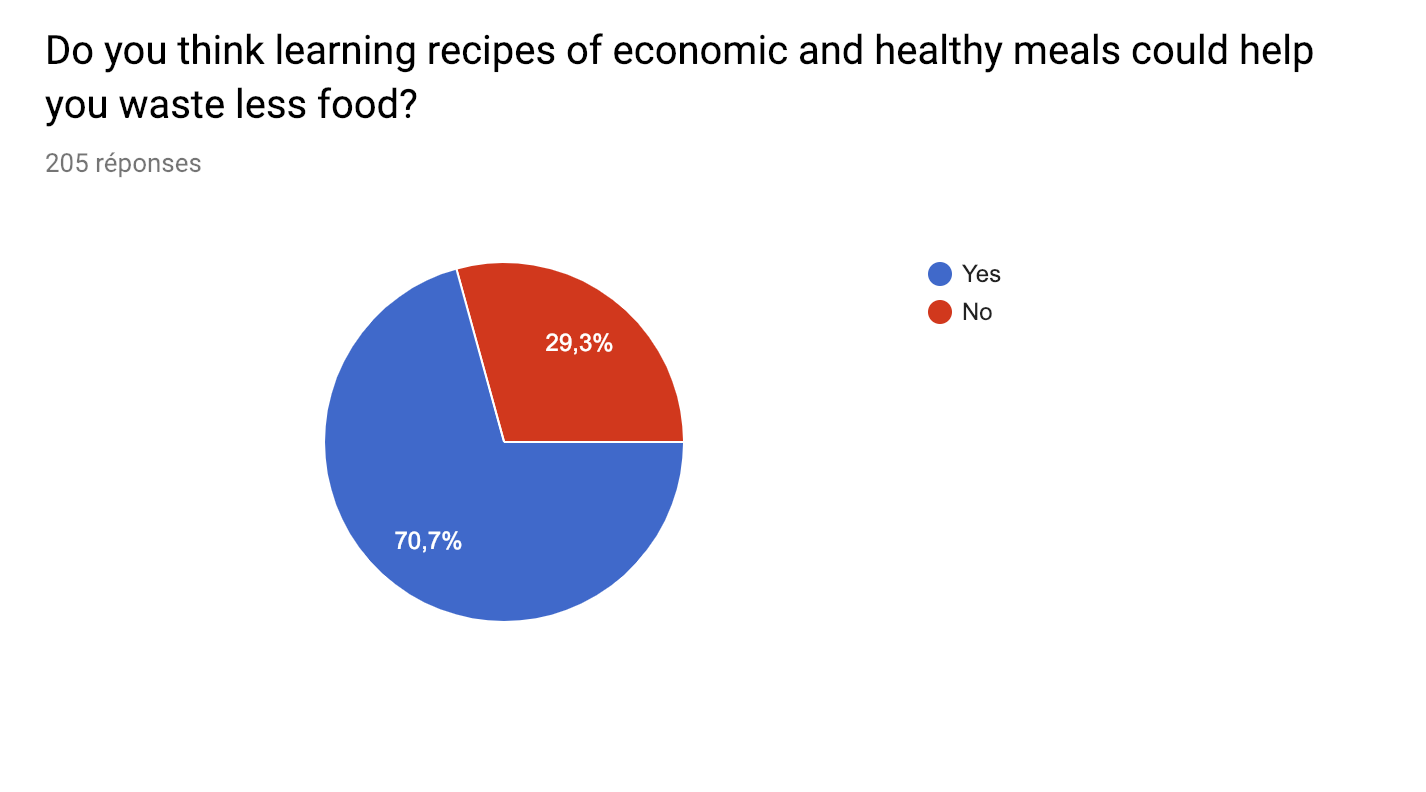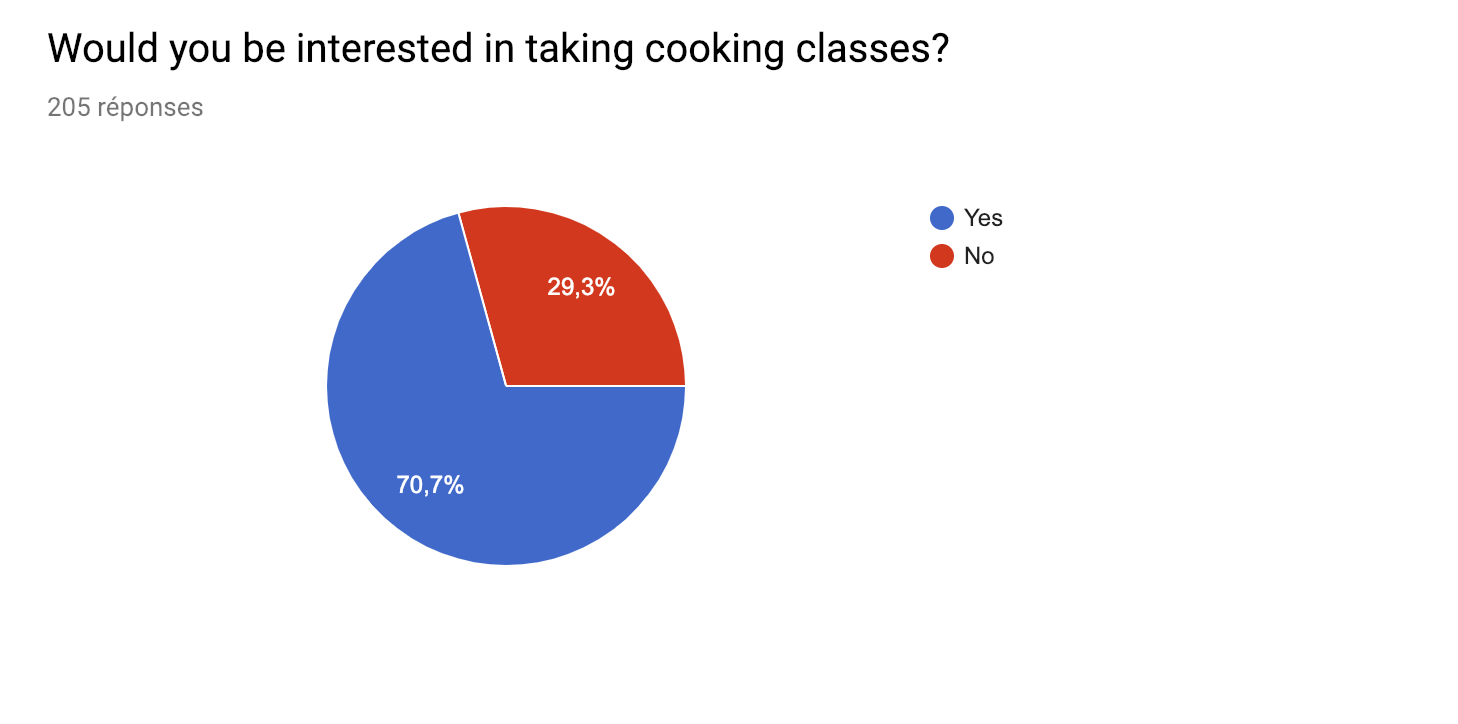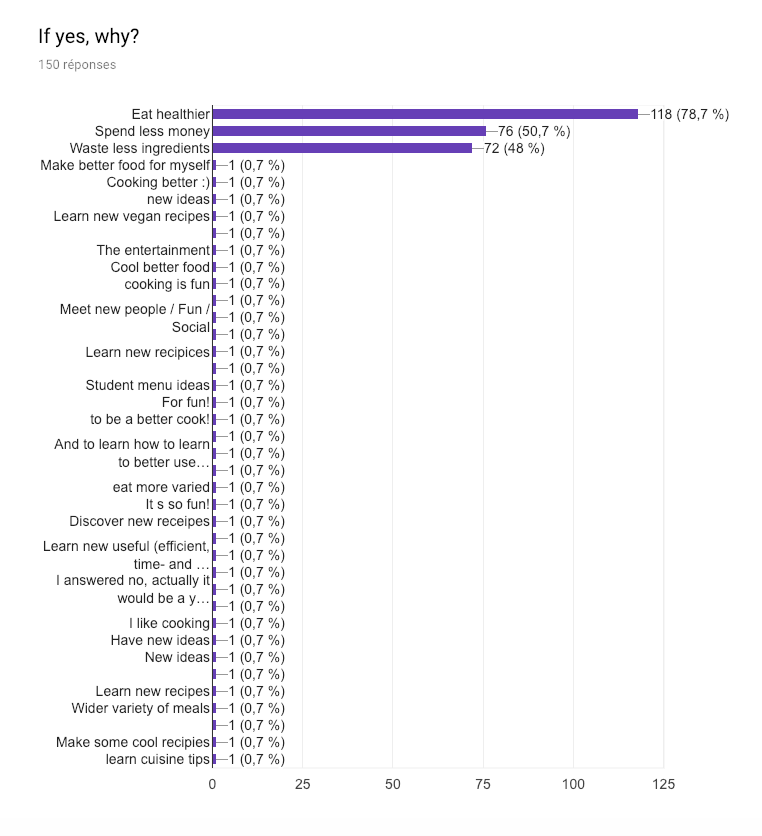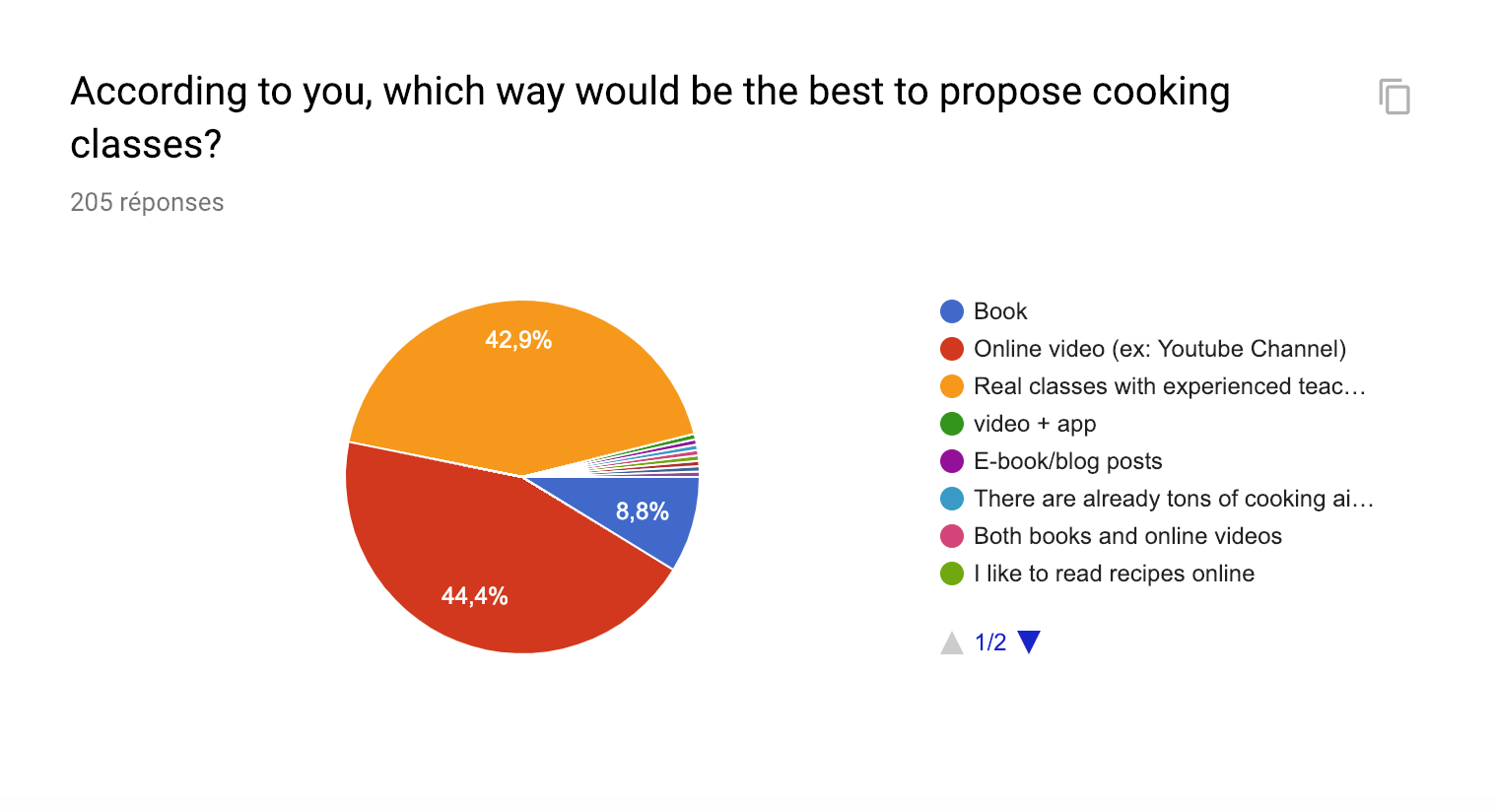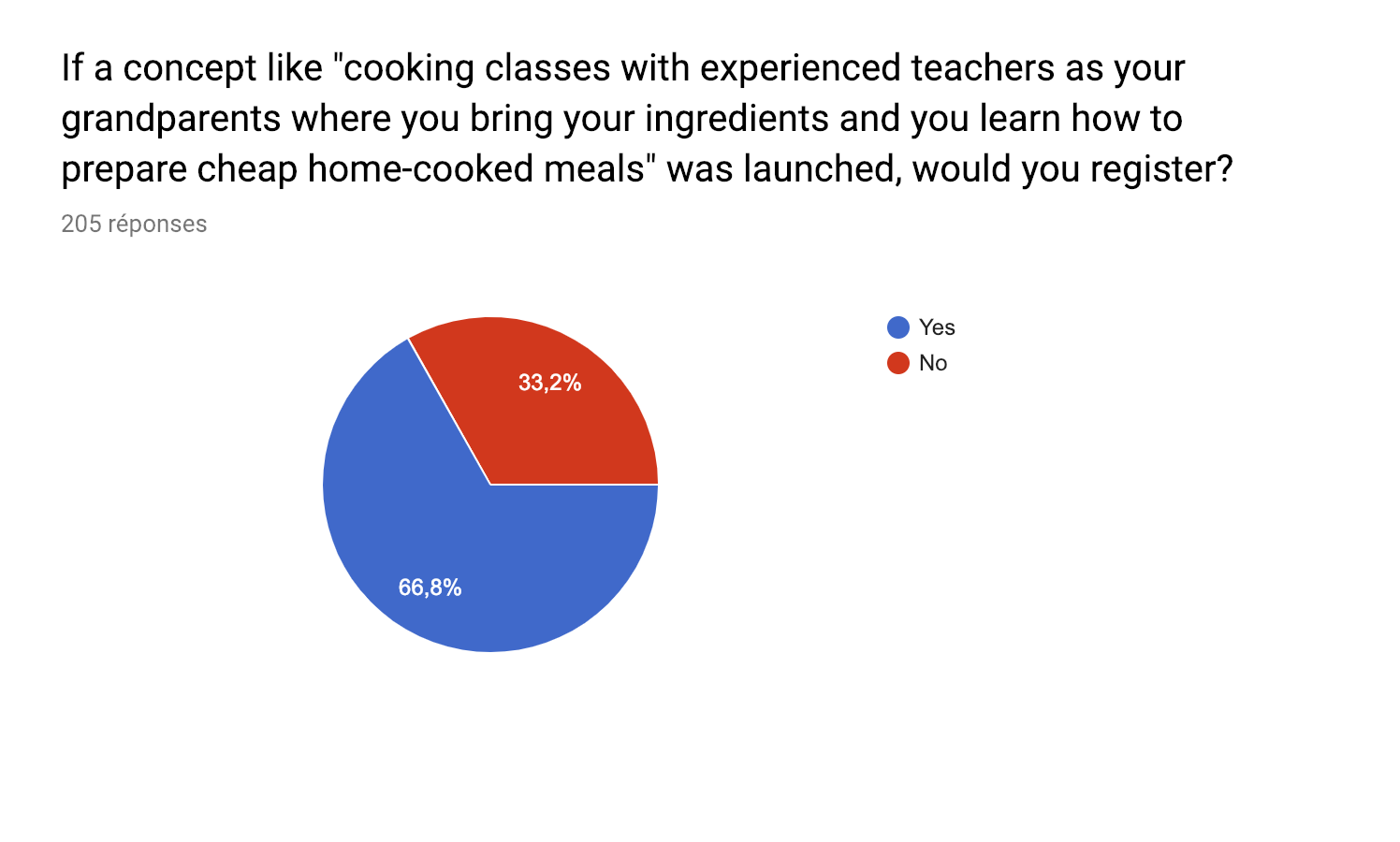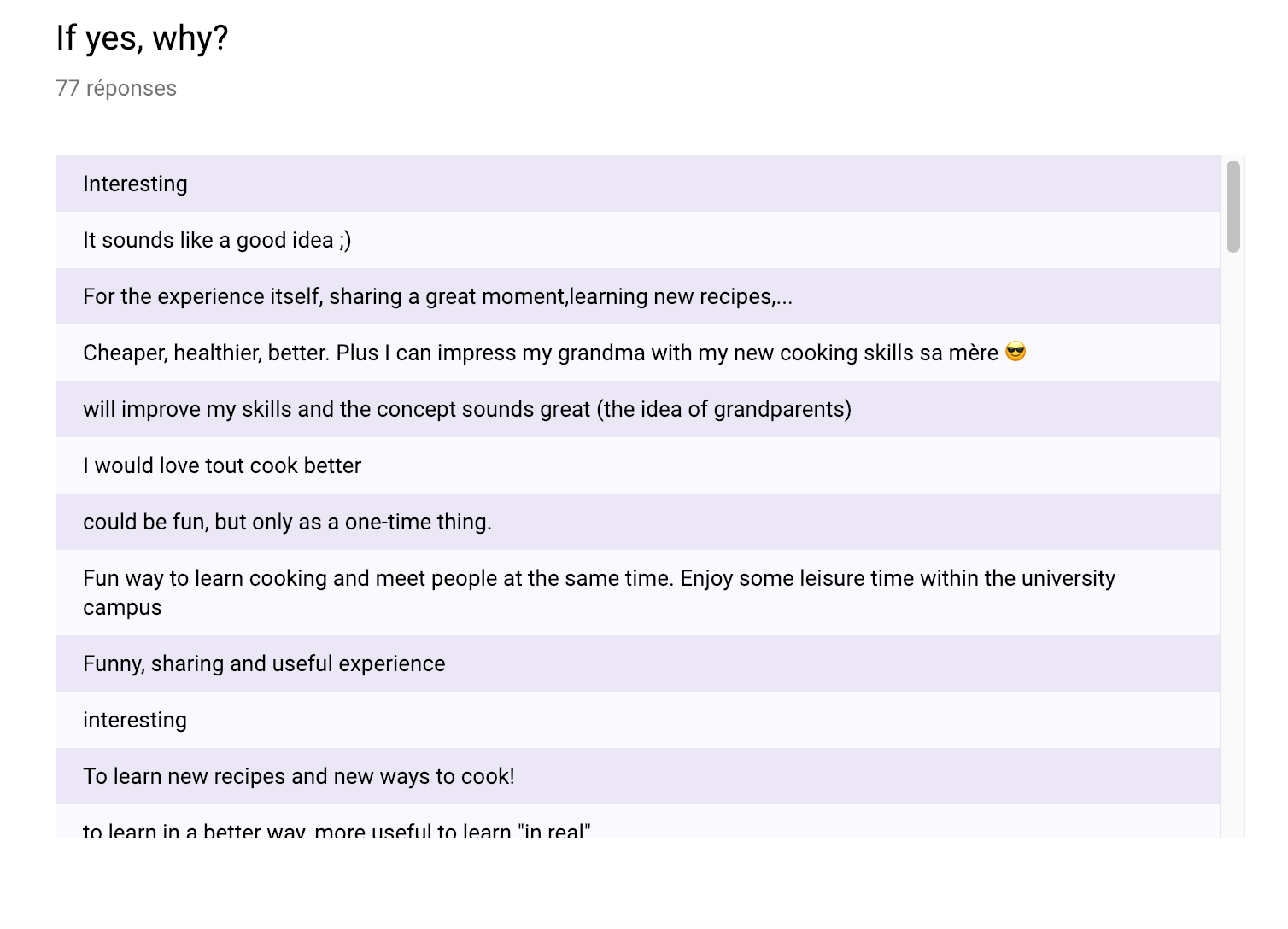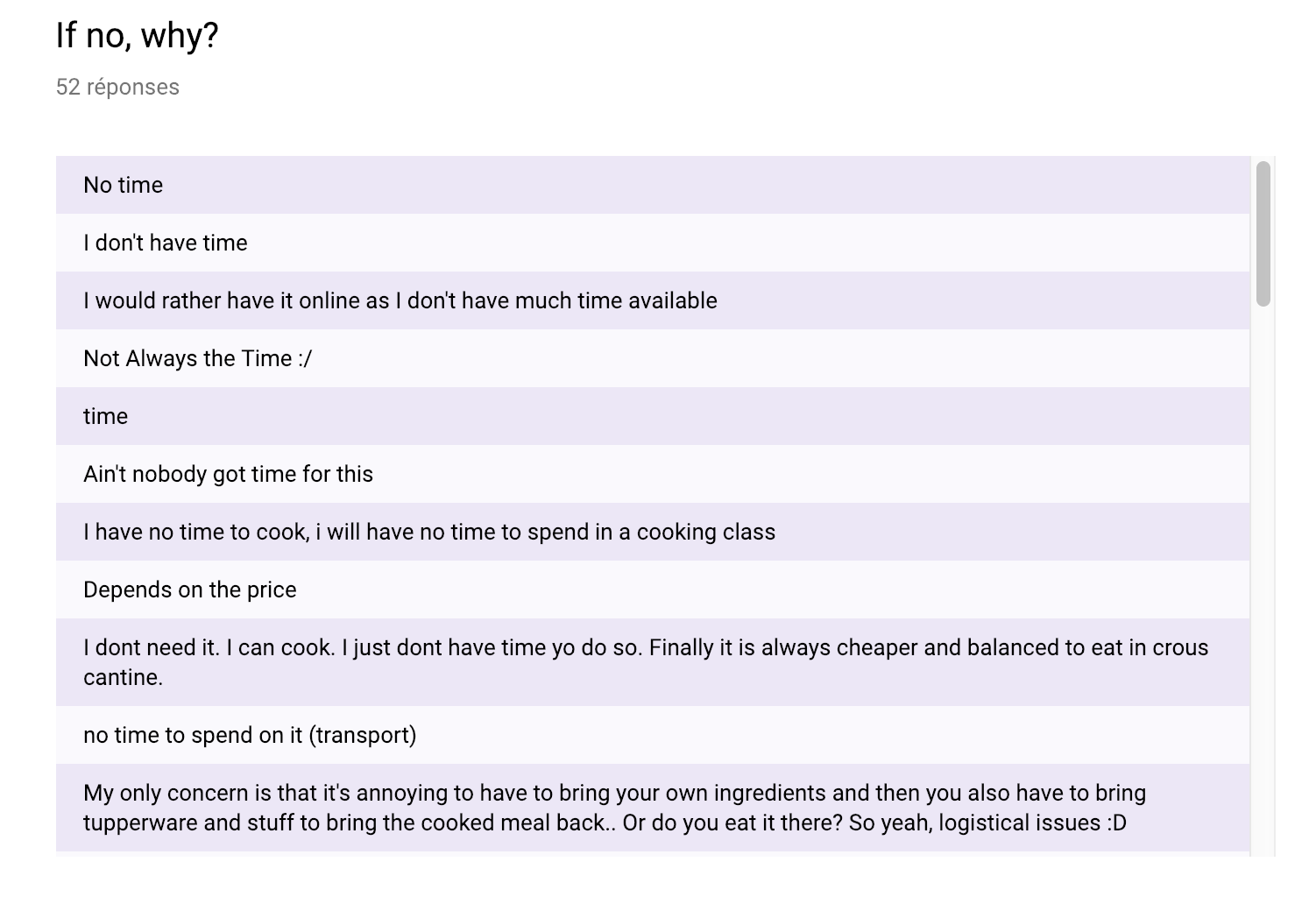
Grandmother's Recipes
For a more healthy, cheaper and environmentally friendly cuisine
A Great transition Project


A Great transition Project
Survey on Cooking & Eating Habits: Results and Analysis
We launched a survey in order to evaluate if our targeted low-budget audience (i.e. students, which at first we would restrain to Sciences Po) would be interested in coming to our cooking classes. The main goal here was to determine whether or not our solution could be effective.
Results are presented with charts, annexed after the analysis.
Across all the answers collected, 97.1% of all the students surveyed asserted that, to them, eating “healthy”, i.e. having home-cooked meals with local and biological ingredients, is important. What we can draw from this number is that almost the whole students population attaches importance to the quality and healthiness of their food. Therefore, our project would rely on a justified assumption that is students are concerned about eating “healthy”. Indeed, for students, eating healthy is a way to preserve their physical health (93%) and well-being (89.4%) as the major reasons; then comes environmental concern (77.4%) and finally money saving (44.7%).
Considering students are concerned about eating healthy, our next interrogation was to know if they can effectively eat healthy in their everyday life. Although a majority of students (58.6%) eat at least one home-cooked meal per day, 16.6% do eat less than 4 home-cooked meals per week. Comparing this to the statistics gathered, that means approximately 41.4% are attentive to their alimentation but can’t properly manage to eat “healthy” on a daily basis. Therefore, we came to the conclusion that, even though our population studied, i.e. students, are concerned about eating “healthy”, they don’t have the means or can’t overcome certain obstacles in order to have a healthy alimentation.
Knowing that students find obstacles or lack means in order to eat healthy, our further interrogation was now to lift the veil off this reality and highlight the reasons why a part of the population surveyed couldn’t have a healthy alimentation. Indeed, we realised that students mainly have a low-budget constraint and also do not have developed enough cooking skills to be able to cook with seasonal ingredients - that are the cheapest, healthiest and most environment-respectful options. We came with the idea of offering cooking classes to students run by experienced teachers - that do not need to be professionals but just must have experience in cooking (ex: grandparents). Accordingly, we intended to evaluate if this solution could be efficient to cope with our major problem.
In our survey, we asked students what cooking classes can bring to them in terms of healthiness, money saving and environmental preservation. 91.7% said that cooking classes would help them eat better, 75.1% that it would help them eat cheaper and 70.7% waste less food. Therefore, we came with the conclusion that our solution was effectively answering the problem we raised on the difficulty of certain students to eat healthy. Finally, 66.8% of the students surveyed affirmed they would be interested in taking cooking classes with experienced teachers such as grandparents where they bring their ingredients and learn how to prepare cheap home-cooked meals. So, students will indeed participate to our project, meaning it could definitely have a positive impact.
In our survey, for those concerned, we asked students to explain why they wouldn’t be interested in taking cooking classes. Among many answers, a few were saying that it is bothering them that they would have to bring their own ingredients. In response to that, we adapted our project, now offering students to pay a membership once a year, go to all the cooking classes they want and the ingredients will be furnished. Another obstacle mentioned by some students was that they are vegetarian or vegan. This was not detailed in the survey, but it is completely doable to organise, once per semester for instance, cooking classes for vegetarians/vegans. Therefore, many of the problems encountered were easy to overcome in order to propose an optimal offer to students.
However, the main problem encountered in the survey was time. Indeed, among the people surveyed that said they weren’t interested in taking cooking classes, 55.8% gave the lack of time as a reason. Indeed, as we know it, students don’t have much time in between their studies and their social activities. Therefore, they usually lack time to cook, and so logically to take cooking classes. At first, we didn’t exactly know how to cope with this problem. But then, we came with the idea of making those classes available through different platforms (i.e. face-to-face classes, youtube channel, books, app, blog, etc.). In the survey, one purpose was to find the best way to launch our project, that is where students would the most beneficiate from it. 42.9% said they would like to have real classes with experienced teachers, 44.4% would like cooking class videos posted on youtube, 8.8% would rather have cooking books and some brought the idea of developing an app or creating a blog.
Thus, we came with the idea of organising real classes with experienced teachers such as retired grandparents and to record those classes and post them on a youtube channel so that many students that don’t have the time to come can watch it online. Therefore, we again overcame the time challenge students can be confronted to. On top of that, many of the students surveyed express their interest for the social dimension those cooking classes can have. Indeed, for many of them, an additional advantage would be the ability to meet new people and socialize. As a consequence, an external benefit would be the social and interpersonal gain student will have when participating and exchanging with others during those cooking classes.
_We surveyed 205 students from Sciences Po. Here are presented the results. _
